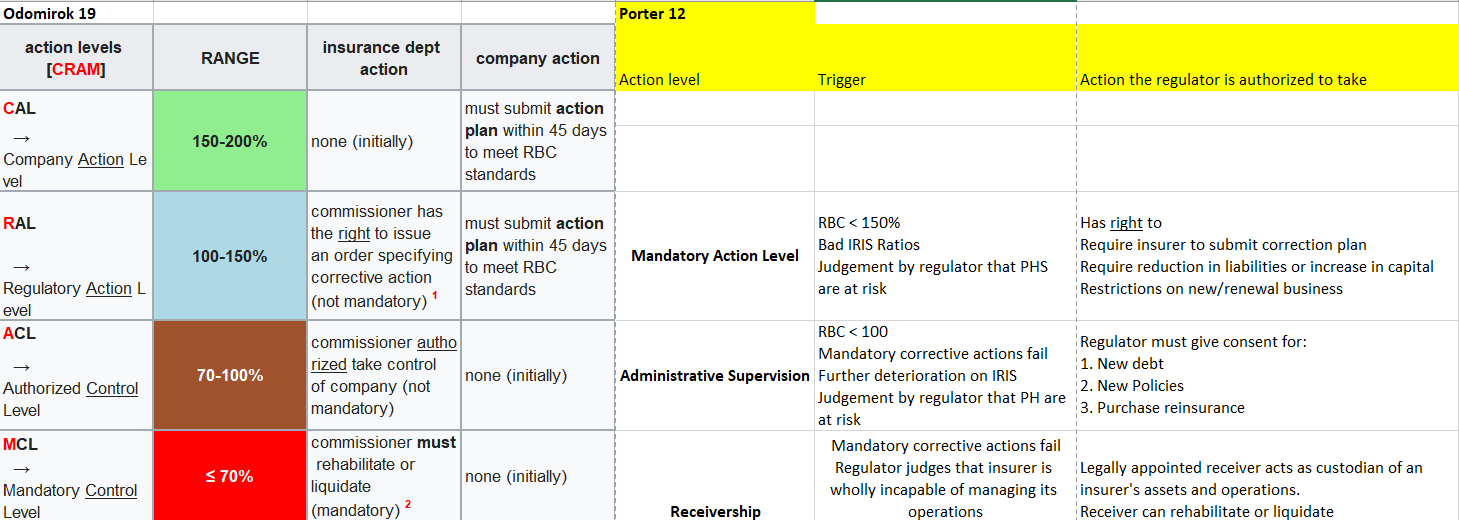Relationship to the action levels
It's a bit confusing that Mandatory Control Level from Odomirok 19 RBC is stricter and different than Mandatory Action Level in Porter 12. Does this graphic accurately show the equivalent levels between the 2 readings?

Comments
Yes, the equivalent action levels between Porter and Odomirok are those on the same row.
Does this mean that if you're asked to identify 3 levels of regulatory action that you could use these 2 lists interchangeably? For example would both "Regulatory Action level" and "Mandatory Action level" be accepted answers or is there something you should look for in the question to identify which answer their looking for (for example, if they specify that they want the "RBC action level" vs just "action level")
I think the two lists can be used interchangeably, unless the question specifically asks for "RBC action levels," in which case you'd be better to stick with the RBC list. See, for example, 2019.Spring.3.
Hello, I read through this and I am still a little confused on how this section relates to the RBC section. Is the RBC table above just a different methodology for regulatory action? I guess I am confused on the point of this section if the RBC table already covers all of this stuff. Do certain states use Porter's method and other states use Odomirok's method? Also why in Porter's section is it called the Mandatory Action Level if the regulator only has the "right" to do to require some corrective actions? It seems like they could still choose not to take any action at this level like the RBC authorized Control Level.
You're right to be confused and your points are valid. This is a case of the syllabus offering two pieces of inconsistent information.
It is not the case that some states use one method and others use the other.
Our advice is to watch closely which article the exam question is referring to, and answer accordingly. It may even be worth it to include in your answer that there is conflicting information in the syllabus, referring to one or the other article.
Graham kindly added a pair of notes to the wiki, one in each article, mentioning the inconsistency with the other article, and he offered up our thread here as an explanation.
Thank you so much!
Sure, good luck.
I made a note in the wiki and linked to this thread from there: